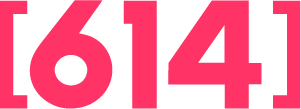A brief guide to the $1,200 Coronavirus stimulus check

millennial | writer | human
As Ohio enters into a new month of social distance and only essential businesses operating, some financial relief from the Coronavirus Stimulus Package could be arriving as early as next week.
To better understand the ins-and-outs of this stimulus package, we’ve pooled together this helpful guide from national publications. Read below to see who qualifies for what in the package, how much to expect, when to expect it, and what steps you need to take to make sure you receive your money.
Do I qualify for payment?
Per the Los Angeles Times, there are many variables to who qualifies for payments. The amount of your payment will depend on your income reported in 2018. Individuals who earn less than $75,000 a year can expect a $1,200 check while individuals earning $99,000 or more would receive no check. Individuals who fall in between these two totals will have their payment prorated based on their income.
That math breaks down to $50 less for every $1,000 earned over $75,000. So a person earning $80,000 would get a check of $950; a person earning $90,000 would get a check of $450; and a person earning $98,000 would get a check of $50.
— Matt Stieb, How and When Can Americans Access the $1,200 Coronavirus Stimulus Checks? for New York Magazine
Additionally, married folks who earn a combined total of less than $150,000 can expect a $2,400 check with an additional $500 per child younger than 17-years-old. If a parent were to file under “head of household,” they would be eligible for the $1,200 check plus the additional $500 per child younger than 17 if they earn less than $112,500 per year. This head of household check is prorated up to individual folks who earn more than $136,500. However, married folks who earn a combined total of more than $198,000 would not be eligible for a stimulus check.
To see what your payment might look like, use this handy calculator created by researcher Jasmine Mah and mathematician Maciej Kowalski, as reported by Business Insider.
Other people who do not qualify for the check include adult dependents, college students, elderly or disabled folks, and children age 17 and 18, reports The Wall Street Journal.
BROUGHT TO YOU BY
How do I receive this?
The first step, according to New York Magazine, is having a social security number. If you have this, you don’t need to apply. The only thing you need to ensure is that the IRS has your bank account on file in order to send you the payment through direct deposit. If you filed your taxes and elected to use direct deposit, this should already be set up. It’s important to note that if your payments are sent through mail, it could take up to five months.
Additionally, if you are receiving veteran benefits or Supplemental Security income, you might need to file to receive your payment, per The Wall Street Journal.
Will I have to pay this back?
To put it bluntly, no. Per Business Insider, the stimulus check will be tax free to Americans.
BROUGHT TO YOU BY






